#writer/ critic/ public intellectual
Explore tagged Tumblr posts
Text
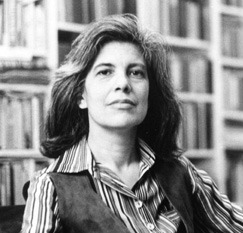


photos :
a、b
c
Susan Sontag 1979 ©Lynn Gilbert (headshot)
"Susan Sontag alone on a bed. N.Y.C. 1965." Photograph by Diane Arbus
蘇珊・桑塔格(Susan Sontag)黑髮間夾雜著白髮的桑塔格
屈服於現在,是為了更好的未來。
Surrender to the present for a better future.
─ 受歐洲文化影響的博學者 - 蘇珊・桑塔格 Susan Sontag 《朝聖Pilgrimage》/她曾是一名美國作家、評論家和女��主義者。她被認為是近代西方最引人注目、最有爭議性的女作家及評論家之一。 蘇珊的寫作領域廣泛,以其才華、敏銳的洞察力和廣博的知識著稱。著作主要有《反對闡釋》,《激進意志的風格》,《論攝影》,《疾病及其隱喻》和小說《火山情人》。
📌 為什麼蘇珊・桑塔格被稱為美國最後一個「歐洲式」知識分子
楊煉:為什麼蘇珊・桑塔格被稱為美國最後一個「歐洲式」知識分子 | 香港01
📌 再見蘇珊.桑塔格,再見!論一位熱愛生命、文化、公義的人
作者:陳耀成
#susan sontag#蘇珊・桑塔格#1933-2004 american#writer/ critic/ public intellectual#朝聖 /pilgrimage on https://www.newyorker.com/magazine/1987/12/21/pilgrimage-susan-sontag#i love her books
11 notes
·
View notes
Text
A few years ago, there was a thread on r/asksciencefiction where someone was fishing for a superhero story with an inverted Omni-Man dynamic, or a setting where Homelander's initial presentation is played straight- a setting where the Superman figure actually is the paragon of morality he's initially presented as, but no other superhero is- a situation where you've got one really competent true-blue hero standing head-and-shoulders in power above what's otherwise a complete nest of vipers.
Someone in the thread floated My Hero Academia; while I haven't read it, my understanding is that that's not really an accurate read of what's going on with Stain's neurosis about All-Might being the only "real hero," that the point of that arc is that Stain's got an insane and unreasonable standard and that taking an endorsement deal, while bad, isn't actually grounds for execution. My own contribution to the thread was Gail Simone's Welcome to Tranquility, where a major part of the backstory involved the faux Justice-League's Superman analogue having a little accident because he's the only one who thought they were morally obligated to go public with the secret life-extending macguffin that the rest of the team is using to enforce comic-book time on themselves and their loved ones; while only a couple members of the team are directly in on it, the rest are conveniently incurious. And Jupiter's Legacy gets tantalizingly close to this- The Utopian, a well-meaning stick-in-the-mud, ultimately gets blindsided and couped by his scheming brother who creates a superhero junta staffed by a Kingdom-Come-style glut of third-gen superheroes, who are framed as fundamentally self-interested because only came onto the scene after most of the situations you legitimately need a superhero to handle have been neutralized. (The rub, of course, is that the comic is also highly critical of the Utopian's intellectually incurious self-righteously 'apolitical' approach to superheroism- if for no other reason than that it left him in a position to get blindsided by a coup!) While Jupiter's Legacy gets the closest, all three of these are only loosely orbiting around the spirit of the original idea, and there's something really interesting there- particularly if the Superman figure isn't hopelessly naive in the same way as Utopian. Because first of all, if you're Metaman or Amazingman or whatever brand-name alias the writer goes with, and you really earnestly mean it, and you put together a team of all the other most powerful heroes on earth in order to pool your resources, and then with dawning horror you gradually begin to realize that everyone in the room besides yourself is a fascist or a con artist or abuser or any other variant of a kid with a magnifying glass eyeing that anthill called Earth- What the hell is your next move?
Do you just call the whole thing off? Can you trust that they'll actually go home if you call the whole thing off? I mean you've put the idea in their heads, are you sure that they aren't going to, like, start the Crime Syndicate in your absence? Do you stick around to try and enact containment, see if getting all of these people on a team makes them easier to keep on a leash? But that's functionally going to make you their enabler pretty quickly, right? Overlooking "should you kill them-" can you kill them? You're stronger than any individual one of them- are you stronger than all of them? The first time one of them really crosses a line in a way you can't ignore- will that be a one-on-one fight? Are they the kind of people capable of putting two-and-two together and pre-emptively ganging up on you if you push back too hard? Do you just start trying to get them killed, or keep them at each other's throats so they can't coordinate anything really nasty? Can you squeeze any positive moral utility out of them, or is that just a way to justify not doing the hard work of taking them down? There've been works where the conceit is to question the default assumption that Superman in specific would be a good person, and there've been works where the conceit is to question the default assumption that superheroes in general would be good people. Something to be done, I think, with questioning the default assumption that everyone Superman becomes professionally close to would be good, and to explore how he'd handle it if they weren't.
1K notes
·
View notes
Photo
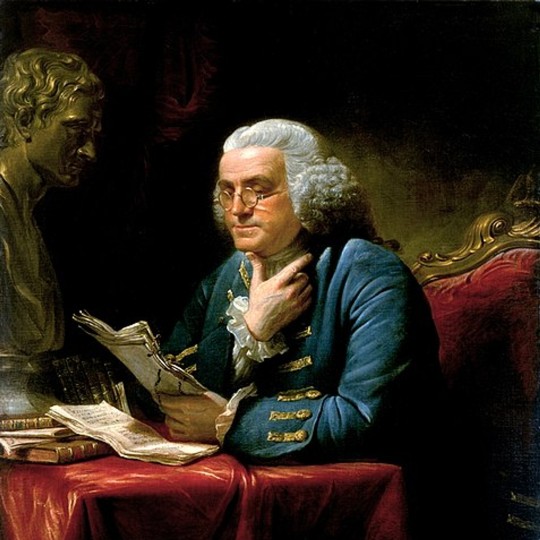
Benjamin Franklin
Benjamin Franklin (1706-1790) was an American printer, writer, scientist, inventor, and diplomat, often regarded as a Founding Father of the United States. He rose to prominence as editor of The Pennsylvania Gazette and author of Poor Richard's Almanack before winning scientific renown for experiments with electricity. He also played a major role in the American Revolution (1765-1789).
Apprenticeship in Boston
Benjamin Franklin was born on 17 January 1706, in the house his parents leased on Milk Street in Boston, Massachusetts. He was, as noted in his autobiography, the "youngest Son of the youngest Son for five Generations back" (46). His father, Josiah Franklin, had emigrated to Boston partially because his older brothers received all the family inheritance in England. Josiah was a well-respected chandler with 17 children across two marriages; Ben was his tenth son and fifteenth child, born to his second wife, Abiah Folger. Ben learned to read at an early age and his father sent him to Boston Latin School, with the intention that he one day join the clergy. But after two years, Josiah was forced to pull Ben out of school due to lack of money. Instead, Josiah arranged for twelve-year-old Ben to be apprenticed to his elder brother James, a printer.
Ben quickly showed an aptitude for the printing trade and, in his free time, read voraciously and refined his writing skills. In 1721, James Franklin founded The New-England Courant, only the third newspaper to appear in Boston. When James invited readers to contribute to the paper, 16-year-old Ben took the opportunity. In 1722, he penned 14 satirical essays under the pseudonym 'Silence Dogood,' presented as a middle-aged widow. As Dogood, Franklin satirized Massachusetts society: he mocked the haughtiness of Harvard College students, questioned the purpose of women's hoop petticoats, and suggested changes to funeral eulogies. Dogood's irreverence soon made her essays the talk of the town, and Franklin listened with pleasure as James and his friends tried to guess the writer's identity. When James was briefly arrested for publishing material critical of the colonial governor, Ben took over the paper, using Dogood to advocate for free speech.
Young Ben Franklin at the Printing Press
Charles E. Mills (Public Domain)
James was released from jail a month later on the condition that he not print or publish work in The New-England Courant. To circumvent this, he publicly stepped aside as publisher and let Ben run the paper, although James intended to keep managing things behind the scenes. To support the ruse, James publicly released Ben from the terms of his apprenticeship, although he had him sign a secret agreement in which he promised to fulfill the terms of his original indenture. Subsequently, the brothers often quarreled over the direction of the paper, and James became jealous upon discovering Ben was the author behind Silence Dogood, while Ben believed himself to be James' intellectual superior. In 1723, Ben left home and fled to New York City; although this broke the terms of the secret agreement, he was confident that James would not go to the authorities for fear of revealing his own duplicity. Franklin briefly stayed in New York but, after failing to find work, he moved on to Philadelphia, Pennsylvania.
Continue reading...
42 notes
·
View notes
Text
WE DON'T HAVE PROOF THE RESET WILL FIX ANYTHING ABOUT THE ADMINS' SITUATION, YOU JUST BELIEVE THEY WILL.
The issues in the server have not been fixed you just have faith they are going to be fixed.
I believe I have been trying to be very nice, to be very respectful of all sides. I have defended and criticized QuackityStudio, Quackity himself, and Léa whenever I saw fit to do so, and I tried to give equal treatment to everyone and be respectful to everyone except those who spread misinformation.
I have been called a Quackity hater, a bootlicker for Quackity, accused of not supporting the admins, accused of hating the project, being told my critical posts were doomposting, and now I am seeing people saying here and on twitter that me not wanting to support the project after the server reset is good. After all, I am a negative fan, I am one of those annoying brazilians that hated Quackity, so good ridence, right?
<3
If you want to believe that the server reset will allow things to get better, that is something you are free to do. But what about not going to people's asks with a passive-aggressive attitude while hiding behind your little anon masks? And I don't mean just my asks
And that is honestly fine, it is fine to believe things are going to be better. But you don't have to be brilliant to see the red flags that we are still receiving from the current management.
Let's talk about how the current management didn't even care to talk with CherryBee and Ryan properly and ghosted them for months. And don't come with the poor excuse of "they couldn't promise anything, they couldn't apologize", because hey, let you on a little secret, you can talk with someone without promising or apologizing. They decided to end the eggs arc, and nobody seems to know when they made this decision, does it hurt to send an email saying "Unfortunately, we weren't able to continue with the eggs characters". CherryBee and Ryan were not giving the most bar low etiquette that the most soulless corporation could give.
CherryBee was only contacted recently, she has been hopeful things would get better until being contacted, she and Ryan spoke openly about wanting to return, they didn't even release any statement until this moment. Why were the admins for Richas, Pepito, Leo, Lullah, and Chayanne allowed to say goodbye to the players but Ryan and CherryBee weren't? The only distinction was that they both were openly friends with admins who were fired, let go, or resigned. I am not saying that is the reason why they both weren't contacted but I could tell what that looks like, it looks like retaliation for showing public support to the other ex-admins. God knows what is happening with 춘식, just know they also didn't get to say any goodbye to the players or audience.
Also, let's talk about this clown show here:
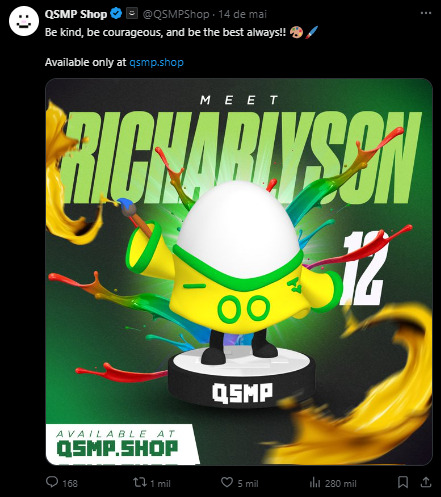
Using the Ricardão(not Richas, Ricardão) farewell for the ghosties as marketing for a figurine one day after Richas officially died is definitely a choice, a dumb one, an incredibly insensitive one, but a choice nonetheless.
But let's talk about how this shows they didn't stop to exploit the admins even the ones that they fired already. So, Elks(he/it) used to be the head writer of qsmp, but he also was responsible for creating concept art and models for characters. He created the entire design and models of Pomme and Richas, it is the intellectual owner of their designs, seeing as part of its TOS was that he was not relinquishing the rights of the designs for the client. Quackity Studio doesn't have the rights over Richas' and Pomme's designs, Elks was not consulted about the figures, he didn't even know they were being made.
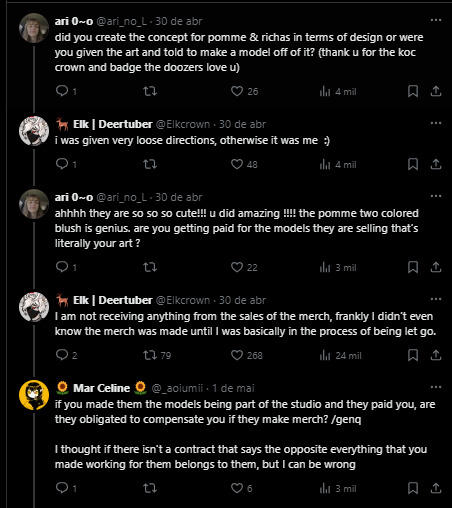
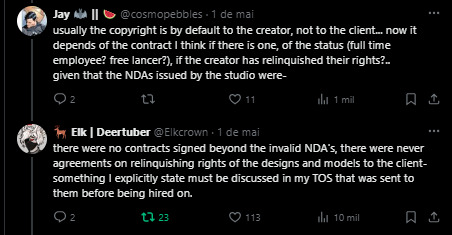
The only reason QuackityStudio didn't receive legal consequences for keep selling the figurines is that Elks doesn't have how to at the moment.
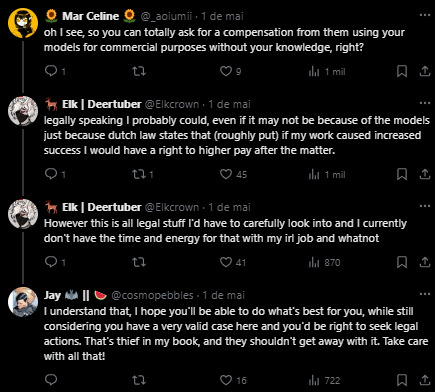
So is very fun to see QuackityStudio will keep exploiting artists even after firing them.
Believe what the fuck you want to believe will happen next, but don't come to me and act as if your beliefs are based on facts and mine are born out of hysteria.
70 notes
·
View notes
Text
What makes this book an uncomfortable, if distant, cousin of GamerGate and men's rights activist logic is that it, too, relies on a series of false equivalencies and muddy distinctions in order to elevate being shamed on social media to epic proportions. These sorts of distortions are dangerous because they minimize — and even threaten to erase — far more systematic and serious problems that have taken years to even reach the public consciousness.
(...)
That all of these episodes might share something is plausible, maybe even likely, and they all involve some degree of real suffering — certainly, being publicly shamed on Twitter or elsewhere on the internet has very real ramifications — but they are not equivalent to one another. Being shamed doesn’t affect people’s lives equally. Ronson tends to dismiss this, as when Adria Richards, the shamer of Donglegate, suggests to him that the white men she shamed for telling sexist jokes at a tech conference (those with what Ronson calls "supposed white privilege") hold more power than she does, and they and their peers are more likely to call her reaction to sexist dick jokes “overblown.” This, Ronson says, “seemed like a weak gambit,” a “logical fallacy” of the sort deployed “when someone can’t defend a criticism against them,” and “change[s] the subject by attacking the criticizer.”
At the same time, he doesn’t seem to make much of the fact that Richards’ “victim” has remained pseudonymous throughout the affair, while Richards, a black Jewish woman whose identity was public throughout these events, was not only fired from her job as a developer evangelist for Sendgrid, but faced a barrage of vicious, violent harassment, and whose address and other contact information were publicly released on 4chan and elsewhere. His ostensible concern is with the threat of the anonymous crowd, but it’s Richards he calls an “inappropriate shamer,” and Ronson comes dangerously close to saying that she deserved what she got.
The construction of false equivalencies is a major strategy of aggrieved white dudes, like men’s rights activists who argue that men have as much right to refuse paternity as women have to choose abortion, or like video game players who claim that critiquing misogyny represents an attack on their marginalized demographic. Ronson’s no 4chan troll, but So You’ve Been Publicly Shamed reads very much like a defense of unfairly victimized white men and privileged white women. This became especially clear yesterday, when writer Meredith Haggerty tweeted a photo of a couple of lines from the book’s uncorrected galleys, which were subsequently cut when Ronson was advised that they sounded especially tone-deaf: “I’d never thought of it that way before—that men feel about getting fired the same way women feel about getting raped ... I can’t think of many things worse than being fired.” Despite the fact that he’d discussed cutting these lines in an interview with The Frisky weeks before, he became the object of a (fairly mild) round of Twitter meta-shaming. Ronson is right, of course, that it’s a bit unfair to criticize him for something that wasn’t in the published book, but the comparison is telling (and not only because it defines women’s social roles as primarily sexual and men’s as economic).
This review really highlighted by main problems with Jon Ronson and his anti cancel culture argument. He is, in my opinion, the Buckley of both-sides centrism, a White male figure who positions himself as an intellectual voice on the topic. It's telling that he's never bothered to investigate the topic of online harassment and it's intersections with gender, race and class.
52 notes
·
View notes
Text
Chastity Cages for White Boys

The story of how wearing chastity cages became the norm for white boys starts with the events in the year 2030. In early 2030, a prominent intellectual named Anwuli Okoro penned an anonymous essay called “Physical Remedies to Systemic Racism.”
In this essay, Okoro argued that many of the historical inequities perpetuated against Black communities stemmed from a kind of sexual “lashing out” from white males. She argued that attempts to date to counter this had proven to have mixed results.
To progress further required a physical remedy: Widespread usage by white boys of chastity cages. In particular, Okoro argued that if this was adopted in the college years, it would have an instrumental effect on white girls, who would be forced to look for alternatives if they wanted to have sex. This would undoubtedly lead to more white girls dating Black men, inhibit white male aggression, and strike a critical blow against both white patriarchy and white supremacy.
From Essay to Hollywood A few influential Hollywood writers read Okoro’s essay and took it to heart. To bring these ideas to the mainstream, they created a sitcom, Apartment 34. The show’s premise was based on a white boy’s progressive mother gifting him a chastity cage for college based on the principles outlined in Okoro’s essay. The white boy is at first reluctant to wear the cage, but when his mother tells him that choosing to not wear it would mean no parental financial support, he agrees.
In the show, the white boy goes to college across the country, and the mother keeps the keys to the chastity cage to ensure the boy remains true to his commitment to wear it.
This setup ensures many moments of hilarity as the white boy navigates college with no possibility of sex, but the show also has a serious undertone. Over time the white boy starts to enjoy having his cock caged. By the end of the show, he actively prefers it and begins advocating for other white boys to try it. The show is careful to show the white boy as happy, and he ends up befriending a beautiful white girl who it is made clear is comfortable being with him only because his cock is caged. The chastity cage helps foster a healthy platonic relationship with the white girl, who eventually ends up dating a Black guy.
While controversial, the sitcom also became hugely popular. It wasn’t long before serious articles were written in mainstream publications like The Atlantic arguing that chastity cages for white males, especially in the college years, held significant promise.
Hollywood and Netflix then upped the media exposure by producing movies showing this as the new normal. In Jack Goes to College, all of the white boys in the freshman class at a liberal arts college pledge to use chastity cages everyday at least throughout their college years after a racial incident in a nearby town. Keys are sent to families or volunteer key holders out of town. The movie traces the positive effects of this pledge for everyone.
A Widespread Movement This media coverage led to a burgeoning movement, with thousands of white males voluntarily caging their small cocks.
By 2033, the practice was widespread, and at most colleges the majority of white boys used chastity cages. There were still a few holdouts, especially among conservatives. Finally, 2 years later, the DEI offices of Ivy League universities and prominent public universities began requiring that white male students wear chastity cages, in order to “foster an environment that promotes inclusivity, undermines white supremacy, and redresses sexual injustices of the past.”
Conservatives challenged these rules, but the Supreme Court ruled in favor of the universities, and not wanting to give up coveted spots at top universities the few remaining white boy holdouts complied. Less prestigious universities and colleges soon copied these rules.
By the end of the 2030s, between voluntary adherence and enforcement of the DEI rules, all white boys at colleges and universities across the country were wearing chastity cages every day. After graduating, most continued to wear the cages.
The effects proved Okoro’s essay to be correct. Relationships between white girls and Black men – already quite common – skyrocketed, racial tensions were eased, and the crumbling edifice of white patriarchy and white supremacy was dealt a crippling blow.
163 notes
·
View notes
Text
Zadie Smith's lack of any hill she's willing to stand on, much less die on, has made her a wonderfully blessed novelist. A very apt mimic of any particular coordinate of the political spectrum, a wicked satirist of modern bourgeois mores, a reader with an incredibly wide palette. Though she has gotten less adventurous as a writer as the years have gone on, she has gotten better at the craft, and she did build from a higher mastery than most.
That said, most of her energy, and in this she joins a great many writers coming from the urban working class of color, seems to be spent not being conflated. Conflated with other black female writers, conflated with protestors, conflated with critics of the establishment. Oh, she does criticize, empathize, recognize herself. But always prefacing it with layers upon layers of self-justification and differentiation. She, like her icon & model David Foster Wallace, feels the need to set herself apart from anything we could categorize her as in bad faith.
So she is a feminist, but worry not, she still loves Updike, Larkin and Pound. She is a utopian socialist but she has nothing in particular to say about the state of the world. She of course has an opinion on the current conflict in Palestine, but she won't tell because it's not important and it's "just words".
Of course you can read Larkin and Pound as a committed leftist feminist and think your personal opinion on world politics is irrelevant compared to what is going on in the world. My gripe is that someone with such high literary pretensions, such admiration for the gusto of free spirits both past & present (someone willing to go to bat for Kanye's trumpist phase in the name of poetry in the very same magazine where she so artfully defends at length that no statement from either student protesters or counter-protesters has value, nor hers) someone who spends so much of her time quoting moral philosophers and pondering the future of writing... That this someone has essentially given up on politics.
My gripe, my visceral annoyance at her, my point is that the "towering mind of her generation" has given up on politics except as background, coordinates to tack the nuance-lacking masses onto, but that great spirits transcend somehow. No wonder she loves Harold Bloom & James Wood. Or that she's a child of Blair's cool Brittania. As a public intellectual, there is no duty to say anything meaningful, or whereof one cannot speak, to remain silent. If your thesis is that you have none and the dead are more important, why spend 4000 words talking about yourself, and how above it all you are and how ineffectual anyone writing about it is, and how you're the only one smart enough to have the dignity of recognizing it ? Why not make form fit content, as you have so often done ? Why not attack specific words, specific utterances that ignore the dead, instead of fighting strawmen ?
The truth is that Smith's outbursts of calling for dignity, reason, nuance, cooler heads are not anything new, not anything groundbreaking, nothing unprecedented, even by the great. You can hear echoes of it in Camus refusing to denounce colonialism because Algerians refuse to speak French. It is the cry of the moral esthete, for whom to side with the dubious, the inarticulate, the incoherent, the angry, all that is like poison to her. Oh, yes, she can defend Kanye's nonsensical racist, and already then antisemitic rants. But Kanye is an artist, "one of our best living poets". So are any writers of dubious politics, any convicted felon, any instance of sustained personal cruelty worth defending against the mob. Their sensibility just hasn't been expanded far enough, they just don't get it. The mob hasn't created anything worthwhile. The mob is childish, does not know the right words, does not rise up to the occasion like it should.
The truth is that Zadie Smith stands for something. If she really believed in the dead, or in utopian socialism, or in responsible public intellectuals, she would have written differently. She stands for transcendence. Her right to be in the world without anyone being able to make moral pronouncements on her, her work, the work of others. She stands for a plane above this world that matters to this world in ways she finds complex and delicate. She stands for herself being judged only on, and from, this plane.
Thankfully, like a child in a playground that insists the game she devised is very good and we should all follow the rules, and really she is a skillful player and we will all have fun with once we simply follow the rules, we are all free to ignore her.
We are free to live in the real world and make real moral decisions, getting our hands and our consciences dirty, yes, but also stand by real human beings. Beings whose freedoms to play pretend, to read and write, to transcend, is hampered by real people who do not care for the right words or the correct moral stance. We are free to fight for a liberated Palestine though we may be partisan, simplistic, quick to anger and inarticulate.
#and should it make us worse artists or readers to be partisan then so be it#I was not put on this earth to read correctly; I was put on this earth to be of the world. No beauty I partake in will save me from that#Zadie Smith
28 notes
·
View notes
Text
Planets in the 3th house
In the following post we’ll discuss what each planet does in the 3th house and how can influence the way you relate to your neighbors’, you siblings and the way you communicate.
Sun: With the Sun in the 3th house you are a bit of a social butterfly, you like to share your ideas with others. You may get easily bored, that’s because you have an active mind and need constant stimulation, usually you like to be very active. Be aware of too much gossiping.
Moon: With the Moon in the 3th house you may be prone in intellectualizing your feelings more than feeling them. You are very intuitive and you find it comforting to learn or study. You find it easy to verbalize your feelings. You can be a good energy healer.
Mercury: This planet is at home here and feels comfortable. You have a natural talent for writing and public speaking. You love to have healthy debates and learn new information. You may be quite tech savvy and enjoy finding out how things work.
Venus: You are pretty loved and popular in your circle; you can be a social media influencer. You are interested in drama, poetry and a desire for beautification. You are very charming and have a way with words that simply attracts other people to you.
Mars: You love to share your knowledge with others and are eager to do so. You can pick up easily many skills if you want to. You are pretty good at crafts and build with your own hands. You are very direct as a person, be careful since you can hurt people really bad sometimes, especially when angry.
Jupiter: You are quite lucky in picking up knowledge on the go, you are blessed with a very good memory and the ability to see the bigger picture no matter the situation. Usually, you are self-thought in many areas of work and life. Also traveling plays an important role in your development as a person.
Saturn: With Saturn here you may feel disconnected and estrange from your relatives. In the early childhood you felt like everything is moving to fast for you and usually this placement indicates learning in a slow and steady phase. You have the tendency to take everything a bit to serious and can be a bit to pessimistic.
Uranus: This placement indicates an unconventional way of thinking and sometimes even speaking. You may get bored easily because of this placement. You may have very strange interests and find it difficult to meet people with similar interests. You may need to slow down sometimes in order to don’t burnout.
Neptune: With Neptune here you are most probably very intuitive and you may receive messages from the spirit realm or simply you just know stuff without knowing from where. You also have a very rich imagination and have difficulties in focusing your attention. This is a good placement that indicates creative writing, painting, sculpting etc.
Pluto: You the one that needs to understand the world around him on a deep level, when you study something or learn a new skill you are either all in or all out, there is no in-betweens with you. You may have an interest in the occult, psychology or medicine. You usually tend to be extremely passionate in a few topics.
NN: You may be a very good writer or teacher but you need to focus your attention in developing this skill also you can pick up foreign languages very easy. With this placement you must understand the sometimes the devil is in the details.
Chiron: This placement can indicate a low self-esteem and probably in your early childhood you were criticized a lot. You may feel restricted in expressing yourself and have a fear of rejection from your immediate environment. You may have been a slow learner as well.
COPYRIGHT ‼️
Do not copy my posts or you will be sued for copyright infringement. All it takes is copying me a few times and it is considered illegal due to the copyright claim written at the bottom of my posts
Do not rewrite/copy my observations and post them to your Tiktok, Tumblr, Instagram
#all signs#astrology#astro placements#astro observations#astro community#for you#sun x moon#saturn#neptune#jupiter#mars signs#planets#hello venus#mercury placements
320 notes
·
View notes
Text

Aries Sun + Moon

Navigation: Masterlist✦Ask Rules✦Feedback Tips
Askbox✦Sources[16][20]✦Paid Readings

✧.* Aries Moon - You radiate outgoing energy, always ready to embark on new adventures with an endless supply of enthusiasm. Your thoughts and actions are swift, making you a self-starter. However, your impatience can sometimes lead to a lack of tolerance, and you may come across as self-centered at times.
✧.* Taurus Moon - Those with a Taurus Moon exude confidence, energy, and a likable demeanor. Your artistic abilities shine, making you a natural in fields like architecture, gardening, or any creative endeavor. Yet, be cautious of becoming overly dogmatic in your views.
✧.* Gemini Moon - A Gemini Moon brings a wealth of talents, particularly in engineering and draftsmanship. Your mind teems with amazing ideas, and your communication skills are quick and witty. However, be mindful of occasional confrontational and sarcastic tendencies, as well as a proclivity to delegate responsibilities to others.
✧.* Cancer Moon - Firm and unwavering in your projects and ideas, you possess excellent business acumen and a pleasant character. You hold family and home life in high regard. Though you're sensitive, you often conceal this facet from others.
✧.* Leo Moon - You're a born entrepreneur who craves the attention of the public. Your enthusiasm and optimism are infectious, driving you to lead and inspire others. Sometimes, highly creative Leo Moons may overlook subtle nuances and effects.
✧.* Virgo Moon - Inquisitive and analytical, those with a Virgo Moon display remarkable efficiency and talent at work. However, you tend to withdraw in personal matters. You're an adept writer but can be a harsh self-critic, always on the lookout for mistakes.
✧.* Libra Moon - Externally bold and passionate, your inner serenity shines through. Others are attuned to your feelings, drawn to your loving and enthusiastic nature. You possess a natural commercial talent along with strong ambition.
✧.* Scorpio Moon - Intensely focused, Scorpio Moons can excel in professions requiring concentration, such as surgery or military service. Your enthusiasm can be overwhelming to some, and your fixed opinions may come across as inflexible. You're known for your coherence and intensity.
✧.* Sagittarius Moon - You're a restless and dynamic intellectual explorer. Your idealism and zest for life influence those around you. However, your frankness and caustic remarks can sometimes rub people the wrong way.
✧.* Capricorn Moon - Nothing can deter your drive for success, even if it means sacrificing your personal life. You possess a dominant personality that naturally tends to take charge in any situation.
✧.* Aquarius Moon - With humanitarian and idealistic tendencies, Aquarius Moons make great teachers or sports coaches. Yet, be cautious of thoughtless, sarcastic comments that can inadvertently hurt others.
✧.* Pisces Moon - While you may appear energetic on the surface, internally, you might struggle with reserve and self-confidence issues. Your kind and well-meaning nature often leads you to offer counsel to others. Occasionally, you may find solace in withdrawing from the outside world.as
Extra Sources: Drawing by Destina Eroland; Template by dayslily on tumblr
(CC) AstroJulia Some Rights Reserved

#astrojulia#astrology#witchblr#astroblr#all about astrology#astro community#astro observations#witch community#astrology notes#astrology basics#aries sun#aries moon#taurus moon#gemini moon#cancer moon#leo moon#virgo moon#libra moon#scorpio moon#sagittarius moon#capricorn moon#aquarius moon#pisces moon
120 notes
·
View notes
Text
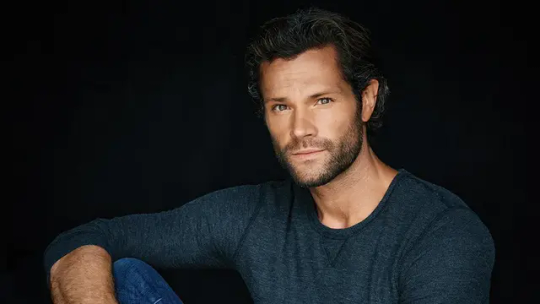
ALEXANDER HARKIN is THIRTY EIGHT years old, potrayed by JARED PADALECKI and his secret is, he is a serial killer
Bio:
Alexander Harkin, 38 years old, is a highly successful and respected crime novelist whose works have captivated readers around the world. Known for his chillingly realistic portrayals of serial killers, criminals, and the darker aspects of human nature, Harkin has become a celebrated author in the literary world. His books, filled with intricate plots and disturbingly vivid characters, have earned him numerous awards and a loyal fan base. Critics hail him as one of the finest crime writers of his generation, often comparing his writing to the likes of Edgar Allan Poe and Stephen King.
But behind the well-curated public persona of a brilliant author lies a far darker truth: Alexander Harkin is not just a master of crime fiction; he is a psychopath and, in reality, a serial killer.
Born in a quiet suburban town in the UK, Harkin had an uneventful childhood, marked by a sense of detachment from others. His family, while seemingly loving and normal on the surface, was far from ideal. Harkin’s father was a strict, unemotional man, while his mother was distant and cold, leaving Harkin to develop his own sense of isolation from a young age. Although he was academically gifted, his emotional indifference and lack of empathy caused him to struggle socially. His peers often found him to be distant and unnervingly calm, traits that went unnoticed by those who did not look too closely.
From an early age, Harkin developed a fascination with crime and human depravity. He became obsessed with true crime stories, spending hours reading about notorious killers and unsolved mysteries. As a teenager, Harkin began writing short stories, channeling his obsession with violence and death into fictional works. His early stories were dark, unsettling, and filled with graphic details — a foreshadowing of the twisted narrative style that would later make him famous.
After attending university, where he studied literature and criminology, Harkin began writing professionally. His first novel, The Silent Hunt, was released when he was 25, and it became an immediate success. The book, about a methodical serial killer on the hunt in a quiet city, captivated readers with its eerie plausibility and psychological depth. It was as if Harkin had an intimate understanding of the criminal mind, a knowledge that he did not just acquire from books and research, but from firsthand experience.
In the years that followed, Harkin’s fame grew as he continued to write a series of bestsellers. His books became more complex and unsettling, filled with characters who were both sympathetic and deeply disturbed. As his public persona flourished, Harkin maintained an image of the tortured artist, an intellectual who understood the darkness within the human soul. He gave interviews, appeared at book signings, and spoke passionately about the psychology of crime, all while keeping his own dark urges hidden from the public eye.
In reality, Harkin was not just writing about crime—he was living it. Beneath his professional success, Harkin harbored a violent and twisted nature that he kept carefully concealed from the world. For years, he had been engaging in his own brutal hobby: murder. His victims, carefully selected, were often women and men who lived alone, those who would not be missed, whose disappearances would not immediately raise suspicion. He meticulously planned each murder, drawing on the same meticulous detail and psychological manipulation that he used in his novels. His crimes were as calculated as his fictional stories, and he reveled in the power and control he felt over life and death.
Despite his dark secret, Harkin was careful not to raise any suspicions. He used his fame and public persona to shield himself, always remaining calm, composed, and well-mannered in front of others. His charm and intellect made him an ideal candidate for the role of a literary darling, and he used that to his advantage to avoid scrutiny. Even as his books grew darker, no one suspected that they were based not just on his research, but on his own experiences.
4 notes
·
View notes
Note
Only tangentially related to the post you made but I think the reason I find the dual attitudes of fanfic being the same as classic literature but also impossible to critique in good faith so funny is because they really seem to think that classical authors were never, like, challenged or censored or edited. It would be one thing if they were discussing fanfic which had gone through critics or editors, or had been in the works for years and undergone significant changes, but fanfic writers will knock out 200,000 words of the worst first draft I've ever read and then act like THAT'S of equal artistic merit to Dante's Inferno. It's very good
I think the most productive definition of fanfiction for this discussion is that it is a particular type of relationship a fan can have to art that is enclosed by intellectual property law. fanfic is “knock off” “unofficial” artistic articulations of a fan author’s interpretation of a text, which only makes sense in the context of privately owned and enclosed art. It’s not that amateur hobby writing has never existed, it’s not that people have never written derivatives of an original text before - those things have always existed. fanfiction is only historically noteworthy in the sense that it is constructed by a particular relationship an audience has to media IPs.
So like, yea fanfic is real art! that is a given. It is also not the same as professionally produced and edited work, which is good to remember when both criticising it and praising it. the only response fic tends to get is reactive - that is, there is no standard feedback mechanism that happens until after fic is written and published (betas/editors do exist but they are not universal or even common). and because of general hostility to critical or constructive feedback of any kind in the comment sections of AO3/FF.net (framed commonly as “well it’s too late to bitch now I already wrote it! What are you complaining about, you got free art!”), fic authors enjoy a very tight bubble of overwhelmingly happy, positive responses to their writing. Which is FINE, I don’t post fanfiction with the intent to get an essay back from people about what needs to be edited or changed, I wrote it for fun like everyone else, but that also means it exists in a very different social environment from commercially/professionally produced art, and as a consequence I’m not going out and proclaiming that I’ve written the next great western epic in the form a star wars fanfic, and if I were to do so I would be asking for a much larger public audience, an audience who is not going to consume my work as fun hobby writing but instead as serious literature, and respond accordingly
78 notes
·
View notes
Quote
Whom the gods wish to destroy, they first call promising. Those whom the public criticizes most, usually end up as full-blown mediocrities. A writer who has produced a respectable body of work and still writes on may be past his prime. He may go into a decline of intellectual menopause, producing more and more of what he does best with less and less feeling until the mechanical becomes habitual and the habit becomes invincible.
Cyril Connolly
7 notes
·
View notes
Text
@hot-claws
"In early Claremont issues, Wolverine repeatedly refers to women, like Mariko, as “frails,” a hilariously misogynistic and demeaning term based on rhyming slang (frail frame rhymes with dame) popularized in the underworld circles of the 1940s and noir fiction. Where some heroes fly or shoot concussive beams from their eyes, Wolverine is superhumanly “masculine” and traffics in a very insistent and aggressive form of white male exceptionalism.
Claremont clearly fetishizes Asian cultures and the level of respect varies between stories. In this mini-series, both he and co-writer/artist Frank Miller are obviously fascinated with what they believe Japanese culture to be. Despite perhaps beginning from a point of admiration, Claremont and Miller aren’t particularly concerned with accuracy. The Japan of this series (and many future Marvel stories) is a largely stereotypical and tropey approximation of the country cobbled together from martial arts films and exploitative pulp novels."
Essayist Eric Sobel writes that Wolverine, “A hero armed with the privilege and invisibility whiteness affords…unlike the foreign characters he encounters, is able to easily move between different identities without placing his whiteness and the agency it bestows in any real jeopardy.”
(Eric Sobel, “The Whitest There Is at What I Do: Japanese Identity and the Unmarked Hero in Wolverine (1982).”)
"In “The Whitest There is At What I Do” scholar Eric Sobel takes a hard look at the stereotypes of Japanese culture and society that inform the first Wolverine mini-series and subsequently become embedded in Logan’s mythology."
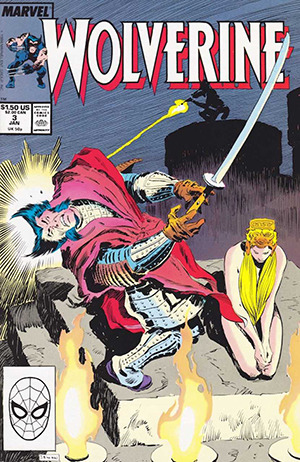
"Sean Guynes is a cultural historian, critic, and writer who lives in Ann Arbor, MI. He is co-author of the forthcoming book Whiteness (MIT Press), co-editor of the Encapsulations: Critical Comics Studies book series for University of Nebraska Press, two journal special issues, and several books—including Unstable Masks: Whiteness and American Superhero Comics (Ohio State University Press, 2020)—and editor of SFRA Review. His shorter writing has appeared in public and academic venues, including Los Angeles Review of Books, American Quarterly, World Literature Today, Utopian Studies, American Book Review, PopMatters, and Strange Horizons.
Martin Lund is a comics scholar who specializes in studying the intersections of religions and comics, comics and identity, and comics and urban life. Recent and forthcoming publications includes Re-Constructing the Man of Steel: Superman 1938–1941, Jewish American History, and the Invention of the Jewish–Comics Connection (Palgrave 2016), Muslim Superheroes: Comics, Islam, and Representation (Harvard University Press/ILEX Foundation; co-edited with A. David Lewis), and Unstable Masks: Whiteness and the American Superhero (forthcoming from Ohio State University Press). He is currently a senior lecturer in the history of religions at Malmö University in Sweden and desperately hoping to carve out some research time."
"I often say I don’t care about Wolverine, but that’s not really true. There are Wolverines that I love. This includes the one named Laura, the James Howlett one who loves Hercules, and the ones in fanfiction and fanart who are various kinds of queer. Sometimes, I also love ones named Logan who appear in licensed comics, cartoons, and films. The Wolverines that I love challenge stereotypes related to masculinity and violence and the supposed inseparability of the two. These Wolverines struggle, heroically, against what a bad world wants them to be or else don’t give a fuck about stereotypes, because they’ve seen it all and know who they are.
Then there are Wolverines I don’t love. This includes the ones mired in white savior tropes and cultural appropriation and especially the ones who uncritically glorify violence, graphically murdering untold scores of people who are usually bad people but still, nonetheless, people. These Wolverines never change yet always demand forgiveness through their enduring popularity and the seemingly boundless acceptance of their less-murderous friends.
But despite knowing which Wolverines I love and don’t love, I frequently struggle to decide how I feel about specific stories starring Wolverine.
"I don’t know the answer to that. But I do know why I often say I don’t care about Wolverine. It’s because I care too much about Wolverine, and often wish I didn’t.
Ironically, I think Logan would understand this very well. Which is precisely why I care about him. And why I continue to hope he can do better, or at least try to try—for his friends, for me, and for himself."
"Part of that is the many writers he goes through. For some he’s a killer, when at his core a lot of fans and writers prefer to see Logan as a protector."
(Discord message board)
5 notes
·
View notes
Note
hey so ik you JUST got an ask about the waves but. can i ask about the waves too
okay so virginia woolf is like FAMOUS for her feminist novels and to me it almost seems like the waves is the odd one out. i just reread it (and annotated, and underlined, and highlighted, and tabbed, and pronounced it one of my favorite books because HOW COULD YOU NOT ITS SO WONDERFUL AND THOUGHT-PROVOKINGG AND POETIC) and although i love it the female characters seem to have more stereotypically feminine roles. i checked the introduction of my copy (intro by molly hite) and saw that it said "The Waves did not offer such exemplary female characters or themes: Indeed, it gave its female characters stereotypical feminine persuits, while its male characters were writers and also active in the public sphere."
there wasn't much elaboration in the intro however (i might be wrong about this though, i lowkey hate reading introductions it's my fatal flaw i'm sorry) except that later on feminists re-examined the waves and looked at subtext. (like how rhoda is a lesbian icon now bc of the mrs lambert passage)
but still, susan is housewife and mother, a stereotypically feminine role (i adore susan but analyzing characters sometimes means discarding some emotional connection for me) and jinny is the romantic sensualist. idk i love jinny and susan but yk i'm just thinking about their roles specifically regarding gender roles HELP IDK I'M PROBABLY MAKING A FOOL OUT OF MYSELF RN AND AM MISUNDERSTANDING SMTH REALLY MAJOR IM SORRY
i was just wondering your thoughts on this?? i mean i just stumbled across your tumblr a few days ago from this other (kind of boring but likes-the-waves-too) blog and you seem to have really interesting opinions abt the waves !! no pressure to respond obv
Hi!! I’m about to get on a plane to London so I will see if I’m able to get all my thoughts out in time. I’ll begin by saying that I’ve read a fairly considerable body of scholarship surrounding the waves, but none of that was particularly feminism-focused scholarship (it was primarily formalism, biographical crit, and analyses of spirituality, science, & metaphysics in the novel with some post colonialism thrown in), so most of this is based off of my personal analysis and discussions I’ve had with my Virginia Woolf professor. I actually love the women in The Waves, but I think a pivotal starting point is the understanding that all of the characters in The Waves function as concepts and ideas first and as actual people second. With that said, I think it is notable that there is not a female artistic/scholarly presence in the book beyond the vaguely mentioned, never-named woman writing in her room (often viewed as being Woolf herself). Originally The Waves included a narrator character that was female and felt very much like a stand-in for Woolf, and I wonder if that was meant to sort of be the female writer/intellectual presence in the novel but got cut to make the book cleaner. Regardless, each of the women are functioning both as archetypes and commentary on their archetypes.
Jinny is probably the least obviously a critique, but I think you definitely very clearly still get it in some moments where she links sexuality and sensuality with violence and objectification.

I also read some criticism that discusses how Jinny as a character can be seen as combatting the solipsism in the book by conveying the possibility and beauty of living physically in one’s own being & that the flesh cannot be ignored, finding a kind of power and importance in the female body (which feels very cixous second wave feminism). Overall, though, I think it’s a discredit to Woolf to not view Jimmy as an explicit examination of her archetype.
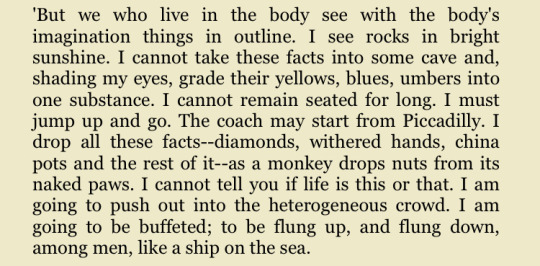
Rhoda & Susan are my girls and my favorite characters in the entire novel. If Susan is not just the most brilliant and breathtaking critique of the wife-mother expectation of women of the time what is. One of the most heartbreaking passages in the entire book to me is when Susan, who found freedom and joy in nature and movement and being one with the outside world (exacerbated by continuous connections between her and animals & nature), is confined to moving exclusively between the rooms of her house. She even immediately evokes the image of the dead mother as she goes. (Additionally, the end of this passage gets into post-colonialist critique, as Susan clearly symbolizes the upper-middle class white women who stayed at home as their husbands colonized India/Africa and directly benefitted from & supported colonization even if they were not actively violently participating)

Susan also holds so so so much anger, like violent fury, the exact opposite of what one would expect from the perfect housewife, and her motherhood is portrayed really as something more animalistic than anything. I also love that her husband is like completely irrelevant to both her and the book; even though becoming a housewife is a horrible restraint placed upon her I think Woolf is playing with expectations by the husband being a nameless shadow and just a vehicle for Susan to get her child (AND functioning as a commentary on the absence of men’s presence and aid in the domestic sphere). I think knowing about Woolf’s opinion of motherhood (continued horror & fascination by it) and her complex feelings surrounding her sister’s motherhood rly adds to understanding why Susan is Like That and so fierce in her nurturing. I also love the passage early on where Susan talks about crumpling the calendar pages in balls and discarding them, her vengeant war against time itself.
RHODA!!! I’m literally getting a Rhoda tattoo that’s my girl my girl!!!!!!! She is psychosis she is transcendence and isolation and mirrors and the waves itself my god. Rhoda is the moon tarot Rhoda is Inland Empire from disco elysium. There is a very fragile membrane between the characters of the waves and Something Larger (my whole capstone paper was on occult spirituality in the waves and my planned future masters thesis will be on ghosts and souls in Woolf’s work), maybe God or the Universe but symbolized in the novel as the ocean of which the characters function as individual waves, but Rhoda is the one for whom this membrane is the most frayed. I honestly don’t know if I have much to say about Rhoda from a feminist perspective other than I find her fascinating and that while I don’t usually encourage overly biographical readings of Woolf it becomes very very apparent if you know Woolf’s diaries and letters well that Rhoda is a mirror of Woolf’s own periods of poor mental health. I guess it relates in that to me Rhoda is of course a woman because she is the most explicitly connected to Woolf herself (in Hermione Lee’s biography, she presents the reading of each of the characters of the waves as members of the Bloomsbury group and Rhoda is picked out as the Woolf parallel. I don’t agree with this reading but it is significant to me how immediately Rhoda is identifiable with Woolf). Okay I’m about to board my flight but if you want to talk any more about the waves or have more specific questions about anything I said let me know!!!


RHODA YOU WILL ALWAYS BE FAMOUS!!!
#the waves#Virginia Woolf#this is so long but basically uh the women in the waves rock#my prof would have more to say about jimmy and feminism in particular that’s more her purview but !! here’s what I have to say
12 notes
·
View notes
Text
Vivian Leopold James - 1939-2019
Australia's greatest export? Well, Clive James certainly beats Skippy the Bush Kangaroo.

Not only a man that I wanted to have me from a very young age, but also, as I grew older, a man I would have liked to have had as a friend (sexual or not).

Poet, TV critic, writer, intellectual, broadcaster, journalist and professional Australian. He left Sydney in 1962 for Cambridge and (apart from visits) never went back.

He had an intense regard but also a ready wit and smile and a fantastic voice and broadcast delivery. Check out his "Postcard" travelogue series or "Clive James on TV".

A heavy smoker, not known for cigars, but there are a few (like this publicity still for "Postcard from Havana". No pipe or glove photos as far as I can find. Let me know if you spot any.

Even in later years, he retained his wit, his intellect and his looks.
30 notes
·
View notes
Text
The Continuing Saga of Les Misérables and Censorship
"Continuing" in that I continue to find out more about this one specific instance that took place in Philadelphia in the late 1890's. To recap, Miss Dalcourt, a French teacher at an all girl's high school, proposed an abridged version of Les Misérables as part of her curriculum. However, the majority of the school board voted that it should be banned, as the topic of "grisettes" was inappropriate. The story was picked up (and mocked) around the country, including in the Vestkusten and the Abendblatt (newspapers for Swedish and German immigrants, respectively.) [See here for the full saga.] @sherbertilluminated had previously translated an article for me from the Abendblatt, which told how Les Misérables was ultimately allowed in Miss Dalcourt's classroom and asked me to keep an eye out for any other German language articles on the subject. And so today Sheb and I (but mostly Sherb) bring you this opinionated piece from the Abendblatt, published the 13th of October 1897:
The decision of a committee of the Philadelphia School Board not to recommend Victor Hugo’s moral novel “The Poor and the Miserable” [Les Miserables] as a French text for the public high school for girls has aroused scrutiny and consistently suffered derogatory judgment. Superintendent Rover’s proposal to use the book in a girl’s school for instruction in the French language may appear conspicuous and could rather have deserved censure. One can find the goal of the author to introduce the reader into the lives of the lowest classes meritorious, and nevertheless need not consider the filth uncovered there to be a suitable intellectual nourishment for immature daughters. One does not lead the youth into those classes in real life, why should one then do so in school? The task of the school is to enrich the youth with knowledge, not with things whose acquaintance has a very dubious worth also for [those of] mature age. Novels will be written in order to create the largest possible draft; there the moral aim is least determinative and will be most highly followed, incidentally. And then the moral aim is not to make the uncorrupted youth acquainted with the blights of human society, but to make attentive toward suppressing these blights those who can work toward such. A teenage girl [“baked fish,” apparently a slang term?], seated at school, cannot do this. Certainly Hugo did not write the novel for school. That Victor Hugo’s books are found in our public library has long proven nothing. In our public library are found quite many books which were not designed for youth, as in our Art Institute are found quite many statues before which a chaste maiden need not linger in critical observation. One does not suit himself for all, neither in the visual arts nor in the scriptural. There are parents who would never ever, if they knew it, foist such reading material onto their children, but there are also parents who would, and those who would never ever, if they knew that Victor’s work “Les Miserables” also visited the [children] of the High School, would put it in their hands. We must thus defer to the committee. In any case, the judgment of a whole delegation, according to the trials put before them, is greater than the judgment of an individual who only admires the language in the work. The pupils of the Philadelphia High School are in any case not so advanced that they cannot know to differentiate between a work of Hugo’s and [that] of another of the better French writers. On this point we can be assured. Full respect to Hugo’s spirit and his creations, but also full respect to the discrimination of the Philadelphian committee, who, itself in danger of exposing itself to the accusation of prudery, has the courage to refuse the youth a dish which they still are incapable of digesting.
The bold parts are just me highlighting the parts I found most entertaining. Also, the whole second paragraph, where the author says that the goal of Les Mis is to effect change and that high school girls can't effect change....wow rude. I do love to read an opinionated article though, even if the opinion is not one I agree with. Anyways, thanks again to Sherb for sharing this with me! There are so many different archives online with materials in different languages, I would encourage anyone who is interested to check them out. When you find something really cool, an old article that probably hasn't been read in decades, it's an awesome feeling.
42 notes
·
View notes